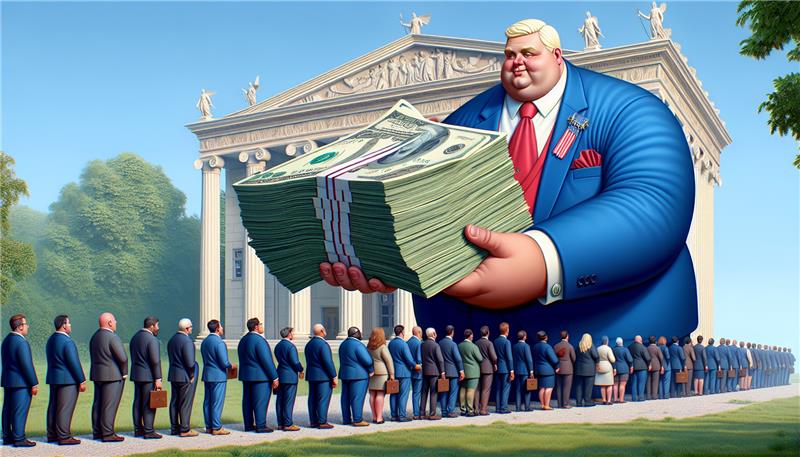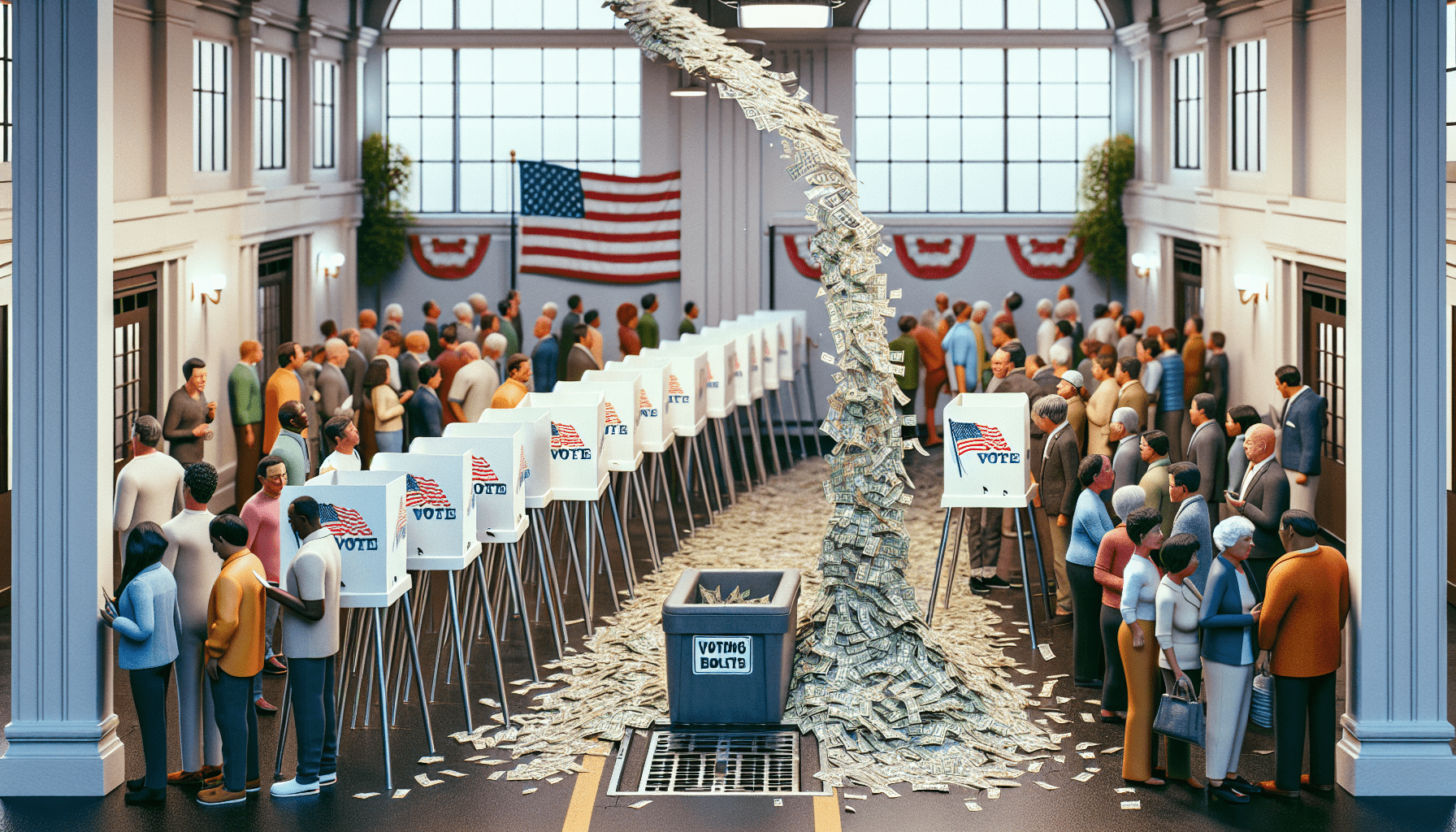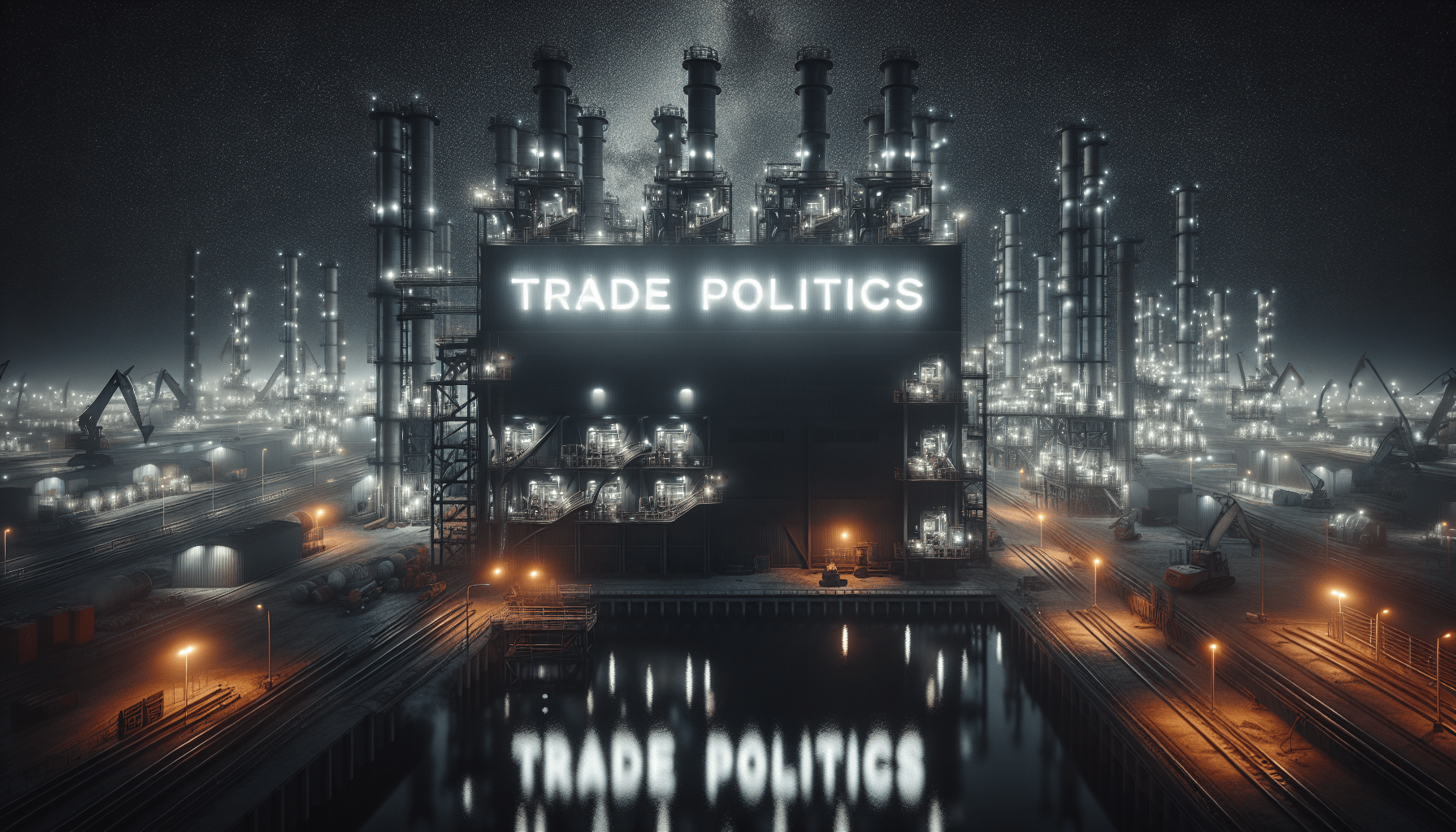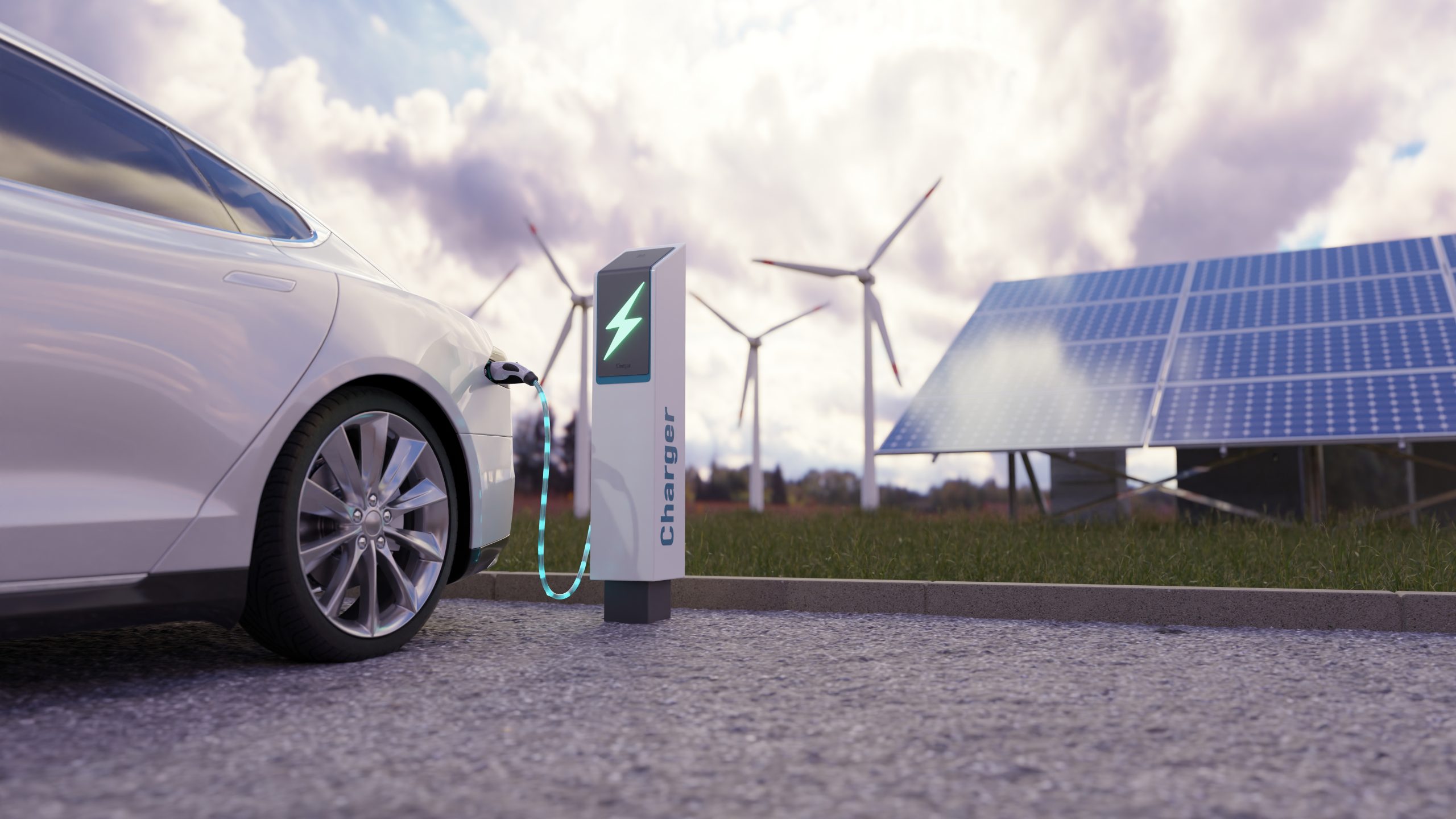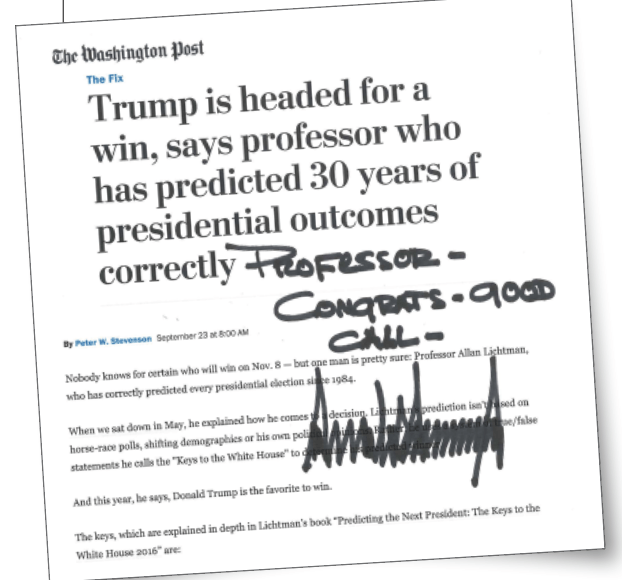What Would Chris Wright’s Confirmation Mean for Nuclear Power?
The nominee for secretary of energy owns stock worth $40 million in an oil and gas services company

President-elect Donald Trump’s nominee for energy secretary has a stake in the nuclear power industry but amassed a fortune in the fossil fuel business. What his confirmation would mean for the administration’s policies on nuclear plants and advanced atomic energy research remains an open question.
The designee in question, Christopher Wright, sits on the board of Oklo (OKLO), a manufacturer of nuclear reactors and recycler of used uranium. But his heart may be with Liberty Energy (LBRT), an oilfield fracking company. That’s because he founded Liberty in 2011, and he serves as its chief executive and chairs its board. Plus, his 2.6 million shares of Liberty stock are valued at $40 million.
Wright has confirmed to the Securities and Exchange Commission that he’ll step aside from his positions at Liberty if he gets the energy department job. Federal ethics rules would also require him to sell his shares within 180 days of confirmation, but Trump could grant a waiver that would allow him to keep them.
Whatever happens with his shares and whatever type of fuel he ends up favoring if he becomes secretary, Wright seems likely to campaign forcefully for increasing the nation’s energy production. He’s often quoted these days as having said “there is no climate crisis,” and he disparages “alarmists” who think otherwise.
Boosting energy production, whether it’s based on burning fossil fuels or splitting atoms, falls in line with the position the Republican party has embraced unequivocally.
A nuclear manifesto and the non-believers
The platform the GOP drew up for the Republican National Convention characterizes the party’s stand this way: “Republicans will unleash Energy Production from all sources, including nuclear, to immediately slash Inflation and power American homes, cars, and factories with reliable, abundant, and affordable Energy.”
In the spirit underlying that platform plank, candidate Trump issued the following statement on the campaign trail: “Starting on day one, I will approve new drilling, new pipelines, new refineries, new power plants, new reactors and we will slash the red tape. We will get the job done. We will create more electricity, also for these new industries that can only function with massive electricity.”
Trump supporters maintain that an aggressive approach to energy could trigger a resurgence of American manufacturing. They predict companies would naturally want to establish factories in the United States because it would become the world’s cheapest provider of electricity.
For historians and anyone else with an extremely long memory, the Trump backers’ assertions recalled the Atomic Energy Commission chair’s prediction in 1954 that nuclear power would produce energy “too cheap to meter.”
But nearly a lifetime later, the world is still waiting for a perpetual motion machine capable of inexpensively powering all the electrical devices humanity could conceive. And opponents of nuclear power argue reactors aren’t the answer.
They insist nuclear power plants pose a grave threat, and anyone with a bit of gray hair may recall the widespread fear engendered by catastrophes at nuclear plants—Chernobyl in Ukraine, Fukushima in Japan and Three Mile Island in Pennsylvania.
Yet even if all goes according to plan at reactor sites, the spent fuel can remain highly radioactive and thus extremely dangerous for anywhere from a few hours to millions of years. Plutonium, for instance, remains hazardous for thousands of years.
Opponents contend that no good storage system has been designed for the waste. Bury it and it’s still perilously close to us. Load it into rockets bound for space, and an exploding booster could spread it through the atmosphere.
Such fears may concern at least one prospective member of Trump’s cabinet, Robert F. Kennedy Jr., the nominee for secretary of Health and Human Services. Kennedy, who’s known for his work as an environmental lawyer, expressed his position last year in an online discussion with billionaire and fellow Trump supporter Elon Musk.
In expressing his opposition to aiding the nuclear power industry, Kennedy said “we should have no subsidies … all the companies should internalize their costs in the way that they internalize their profits.”
For his part, Musk might favor nuclear power but still shy away from allotting federal funds or tax breaks to the sector. After all, Trump has picked Musk and businessman Vivek Ramaswamy to head a proposed new government department charged with cutting federal spending. The duo and whatever staff they may assemble could place subsidies or deductions for nuclear plants and research on the proverbial chopping block.
Trump himself has at times sounded hesitant about federal backing for giant nuclear facilities like Vogtle, the installation in Georgia. In his October interview with podcaster Joe Rogan, Trump called the sprawling four-unit plant “too big and too complex and too expensive.”
That sort of talk elicits warnings from champions of the industry like Jessica Lovering, co-founder and executive director of the Good Energy Collective, a pro-nuclear advocacy group.
“We’ve heard a lot of promises [about] an ‘all-of-the-above’ energy strategy,” Lovering told the Utility Dive newsletter, “but there’s “a big divide between words and actions.”
Still, members of the nuclear establishment have gone on the record as hopeful about the incoming administration’s commitment to their industry, as reported in a survey of officials published in Utility Dive.
Here’s what Nuclear Energy Institute President and CEO Maria Korsnick told the newsletter: “We look forward to working with the new administration to advance policies that extend the lives of existing nuclear reactors, usher in a new era of advanced technologies and support a global marketplace for U.S. exports.”
Plants and the marketplace might not be the only focus of Trump administration support for the industry, according to Judi Greenwald, executive director of the Nuclear Innovation Alliance. She struck an optimistic note in her statement to the website, saying she expects “advanced nuclear energy to continue to enjoy robust and bipartisan support.”
Aside from those expressions of confidence and the occasional cautionary note, we can look to the past for precedents that could shape the future.
The first Trump term
Trump announced soon after taking office in 2017 that his administration would “begin to revive and expand our nuclear energy sector, which I’m so happy about, which produces clean, renewable and emissions-free energy.”
To that end, he signed the bipartisan Nuclear Energy Innovation Capabilities Act of 2017 (NEICA), legislation written to revitalize the industry by refurbishing plants and funding research aimed at innovation.
The NEICA was intended encourage collaboration between the public and private sectors and reduce the licensing fees charged by the U.S. Nuclear Regulatory Commission
The new law also compelled the Department of Energy to refine its computing expertise through the modeling and simulation of advanced nuclear reactors. It said the “national labs, universities and private sector will help develop new software and tools for developers to use to speed up their research on fission and fusion reactors, in addition to space applications.”
Scott Melbye, executive vice president at the mining company Uranium Energy (UEC), summarized Trump’s first-term energy policies in a report on the MarketWatch website. “Despite Trump’s well-known slogan of ‘drill, Baby, drill,’in support of fossil-fuel production he was also very supportive of nuclear power in his first term as president,” Melbye said.
But what about a role the rest of us?
Entrepreneurs, investors and nuclear power
Axios reported this week that Facebook parent Meta (META) is seeking developers to bring nuclear reactors online beginning in the early 2030s to support data centers and communities around them.
“Meta is joining Amazon, Google and other tech giants in turning to nuclear generation to fuel energy-thirsty AI data centers with zero-carbon electrons,” the Axios story said.
That means the rush is on for ways of creating more electricity to help companies augment their operations with the help of AI. Will the Trump White House help the techies or the environmentalists prevail? Time will tell, but Luckbox is betting on the nuclear industry, not the green movement.
Ed McKinley is Luckbox editor-in-chief.

